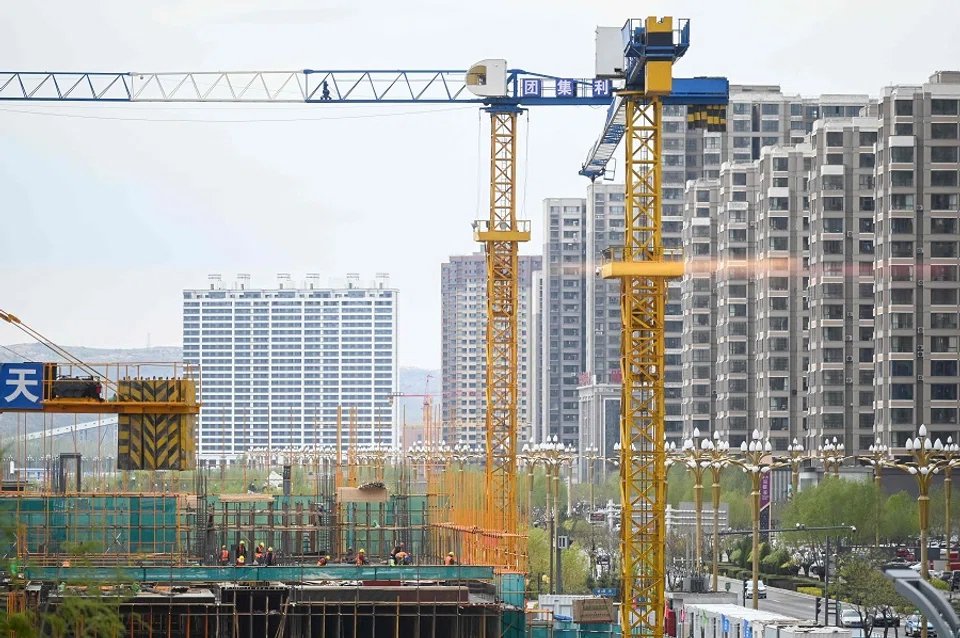China's housing downturn: Household registration reform needed
In China, policy easing in real estate continues even as calls for greater stimulus packages get louder. But to address the nub of the property downturn, says PIIE researcher Tianlei Huang, long-term challenges such as supply-demand imbalances and the discriminatory household registration system should be addressed.

More than half a year into the country's Covid reopening, China's real estate sector is still deep in a slump. Property development investment across China continues to drop, and the declines are widening in recent months. Housing demand also remains weak. Even in top-tier cities like Beijing and Shanghai, property sales have been falling while inventory has been on the rise in recent months. Given the sheer importance of real estate activities to the Chinese economy, waning housing demand has become a major drag on China's recovery which has lost its momentum. Analysts are now debating whether more stimulus is needed to boost the property market.
It is doubtful whether some additional cuts in mortgage rates or down payment requirements would really make any meaningful difference in reviving demand...
Overinvestment in real estate in lower-tier cities
But the problem is that cities across the country have already done much policy easing in real estate. Mortgage rates are already at record low levels. Down payment requirements for first-time home buyers in many cities have been lowered to 20%. Purchase limits and property ownership rules have been relaxed to various degrees in most cities. Financing channels for developers have been largely restored and their liquidity shortages have greatly improved. And the regulators most recently announced an extension of its previous supportive policies through 2024. It is doubtful whether some additional cuts in mortgage rates or down payment requirements would really make any meaningful difference in reviving demand, given low confidence among households and weaknesses in their balance sheets.
One estimate suggests that between now and 2035, real estate construction in China's third-tier cities needs to shrink by 30% to achieve supply-demand balance.

While the adjustments undergoing in China's real estate market may look alarming, they could benefit the Chinese economy in the long run. China has long overinvested in real estate. Property development investment made up nearly one third of all fixed asset investment at its peak in 2020. The issue of overinvestment is particularly severe in lower-tier cities where demand is weak, resulting in overbuilding and excess housing stock. What makes the situation worse is that many lower-tier cities in China's vast inland are seeing population outflows. One estimate suggests that between now and 2035, real estate construction in China's third-tier cities needs to shrink by 30% to achieve supply-demand balance.
It is time for China to look beyond short-term stimulus in real estate and address some longer-term concerns in the broader economy with major implications on housing. China's discriminatory hukou (户口 household registration) system is undoubtedly one of those concerns.
This means nearly 20% of the Chinese population lives in cities but do not have equal access to public services including in education and healthcare as those with local hukous.
Household registration quagmires
Heavy restrictions in granting migrants local hukou in large Chinese cities have long dampened housing demand from migrant families. They have also become a major institutional impediment to faster urbanisation. While more than 65% of the Chinese population now permanently settled in urban areas, only 47% of the population has urban hukous. This means nearly 20% of the Chinese population lives in cities but do not have equal access to public services including in education and healthcare as those with local hukous. Many of them live in large cities and surrounding areas because they see better economic opportunities there, despite the many barriers these cities have created trying to turn them away. In large cities, a local hukou is often a prerequisite to purchase a local property, though local authorities do sometimes loosen the purchase limit to boost local property markets.

Restrictions in granting hukou are partly driven by the government's desire to divert migration from large cities to small cities. Chinese officials worry their big cities have grown too big already while most smaller cities and towns in the country's vast inland remain underdeveloped. In top-tier cities like Beijing and Shanghai, local governments have even set caps on total populations and planned public services in accordance to their preset caps, with some limited flexibility to accommodate needs from visitors. But the government's efforts to discourage population inflows in the large cities have largely failed. China's 2020 census data record continuous population inflows in the past decade in China's most developed coastal regions, while most small cities in northeast China and midwest China lost population at the same time. This suggests small cities simply do not have the same appeal to migrants as big cities like Shanghai and Shenzhen.
They are just as important as the well-educated talents.
In granting migrants local hukous, local authorities in big cities usually prefer those who are better educated and wealthier. Many poorly educated hukou-less migrants find themselves treated as second class citizens in the cities where they have lived for decades. But what local officials in big cities fail to realise is that those migrants who are less educated are not necessarily less skilled. A study finds that rural migrants who moved to big cities in China at a younger age tend to accumulate skills faster and make higher salaries later in life. Educational attainment is less of a determining factor than the age of migration in their performance in the labour market. China is increasingly a service economy, and hundreds of millions of migrant workers working in service jobs in cities are indispensable to Chinese cities. They are just as important as the well-educated talents.
A more permanent solution would be to outright loosen more restrictions on granting local hukous to migrants, including those who are less educated.

Local authorities in big cities may be able to release some dampened housing demand from hukou-less migrants by relaxing property purchase limits temporarily, which is exactly what some local governments are doing now. Yet those who own a local property but do not have a local hukou still do not enjoy the same access to public services, especially education for their kids, as those who have both. A more permanent solution would be to outright loosen more restrictions on granting local hukous to migrants, including those who are less educated. Indeed, Chinese top-tier cities are already big, but their population density is still lower than that of similarly large cities like Tokyo and Seoul, and they do have the room to accommodate more people. China's prolonged housing downturn provides just another reason to reform its troubled hukou system.
Related: Why Shenzhen's plan to transform 'urban villages' is causing distress | Shanghai's falling property prices indicate economic gloom in China | China's property companies going bust may be a common sight in 2023 | China lines up yet more aid for the property sector, but will it be enough? | Chinese local governments facing debt crisis: Waiting for bailouts





![[Photos] Fact versus fiction: The portrayal of WWII anti-Japanese martyrs in Taiwan](https://cassette.sphdigital.com.sg/image/thinkchina/3494f8bd481870f7c65b881fd21a3fd733f573f23232376e39c532a2c7593cbc)